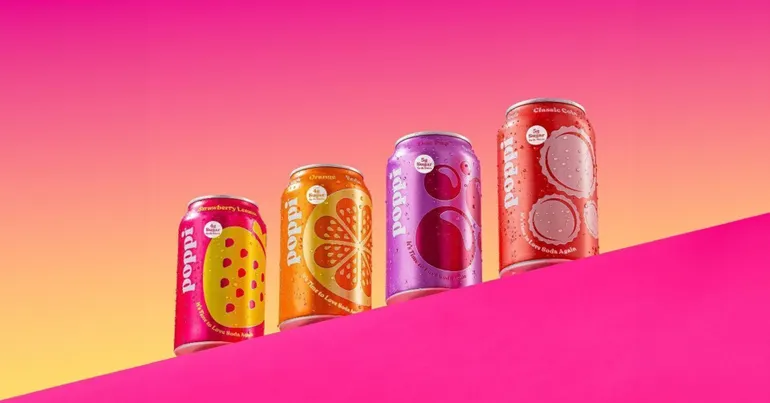PepsiCo, a major player in the beverage industry, recently made a significant move by acquiring the functional soda brand Poppi. This purchase marks a shift in the soda category as consumers increasingly seek out drinks with more functional ingredients and less sugar.
Ramon LaGuarta, PepsiCo’s chairman and CEO, highlighted the company’s strategic decision to acquire brands in new spaces to evolve its portfolio. He emphasized the changing consumer preferences for convenient and healthier options, which align with Poppi’s offerings.
Poppi gained popularity after appearing on Shark Tank in 2018 and receiving an investment from Rohan Oza. The brand officially launched during the COVID-19 pandemic and experienced growth with a $25 million funding round in 2022.
Interestingly, PepsiCo had initially planned to introduce a better-for-you soda under the brand name Soulboost. However, the product was discontinued during development, leading PepsiCo to pursue the acquisition of Poppi instead of competing with them directly.
In contrast to PepsiCo’s acquisition strategy, Coca-Cola opted to launch a prebiotic soda under its Simply juice brand instead of acquiring a competitor. PepsiCo’s focus on purchasing trendy brands with healthier ingredients is evident in its previous acquisition of Siete Foods, a Mexican-American tortilla chip maker known for its clean-label ingredients.
Poppi’s formula includes sparkling water, apple cider vinegar, and prebiotics like agave inulin, with only 5 grams of sugar per can. The brand offers a variety of flavors, such as Orange Cream, Root Beer, and Cherry Limeade.
Despite its health claims, Poppi has faced scrutiny, including a class action lawsuit alleging that the drink is essentially sugared water. The brand’s marketing campaigns, including a controversial Super Bowl ad and a vending machine giveaway to social media influencers, have also sparked debate.
PepsiCo’s acquisition of Poppi reflects its ongoing efforts to diversify its portfolio with healthier options and stay competitive in the ever-evolving beverage and snack market. With this strategic move, PepsiCo aims to meet the changing demands of consumers while expanding its presence in the functional beverage space.


